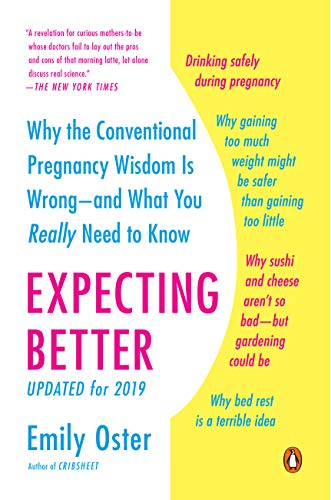

This article is an excerpt from the Shortform summary of "Expecting Better" by Emily Oster. Shortform has the world's best summaries of books you should be reading.
Like this article? Sign up for a free trial here .
Pregnant women are commonly recommended to avoid a long list of foods – raw eggs, raw fish, cheeses, deli meats, to name a few. The general fear is that food illnesses can bear a risk to the fetus.
Are these real threats and foods you avoid when pregnant? Or are these overblown?
Emily Oster argues that many food illnesses are actually no riskier than when you’re not pregnant. But two forms are, and are worth avoiding.
Foods Commonly Avoided that are Actually Fine
Typical food poisoning is caused by Salmonella, E.coli, and Campylobacter. These pathogens cause diarrhea, nausea, and vomiting, but do not usually affect the fetus.
For foods more at risk of harboring these bacteria, like raw eggs, raw fish, and shellfish, use your standard caution. Chances are you haven’t gotten food poisoning more than once a year, and this isn’t going to get more likely when you’re pregnant.
Foods to Seriously Avoid While Pregnant
Oster acknowledges two illnesses that are harmful:
Toxoplasmosis
Toxoplasmosis affects 1 in 1,500 babies and causes mental retardation, blindness, and epilepsy. Acute toxoplasmosis in the mother has a 30% chance of infecting the baby.
You can get toxoplasmosis from undercooked meats, dried/cured meat, and unwashed vegetables and fruits. Cat litter is actually less likely than the above dietary sources.
If you already have toxoplasmosis (25% in the US do), then there’s no risk to your baby.
Listeria
Listeria affects 1 in 8,000 babies and, in 10-50% of pregnant women who are infected, can cause miscarriage, preterm birth, stillbirth, meningitis, and neurological problems. The mechanism seems to be infection of the placenta, which triggers defense by the mother and expelling the placenta.
The sources for listeria outbreaks are sporadic and unclear, with sources in ice cream, cantaloupes, celery, and deli meats. Oster noticed a pattern in queso fresco (Mexican soft cheese) and deli turkey meat and chose to ignore those.
Listeria grows well at fridge temperatures, so if you want to be safer, chuck out anything that’s been in the fridge for too long
———End of Preview———

Like what you just read? Read the rest of the world's best summary of "Expecting Better" at Shortform . Learn the book's critical concepts in 20 minutes or less .
Here's what you'll find in our full Expecting Better summary :
- Why much parenting advice you hear is confusing or nonsense
- The most reliable way to conceive successfully
- How much alcohol research shows you can drink safely while pregnant (it's more than zero)
- The best foods to eat, and what foods you really should avoid






